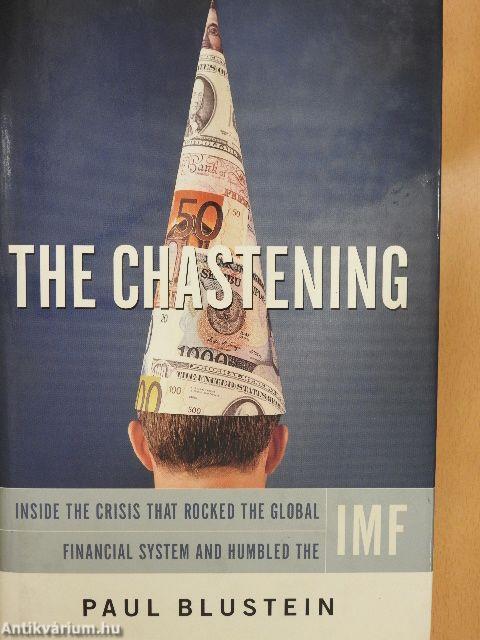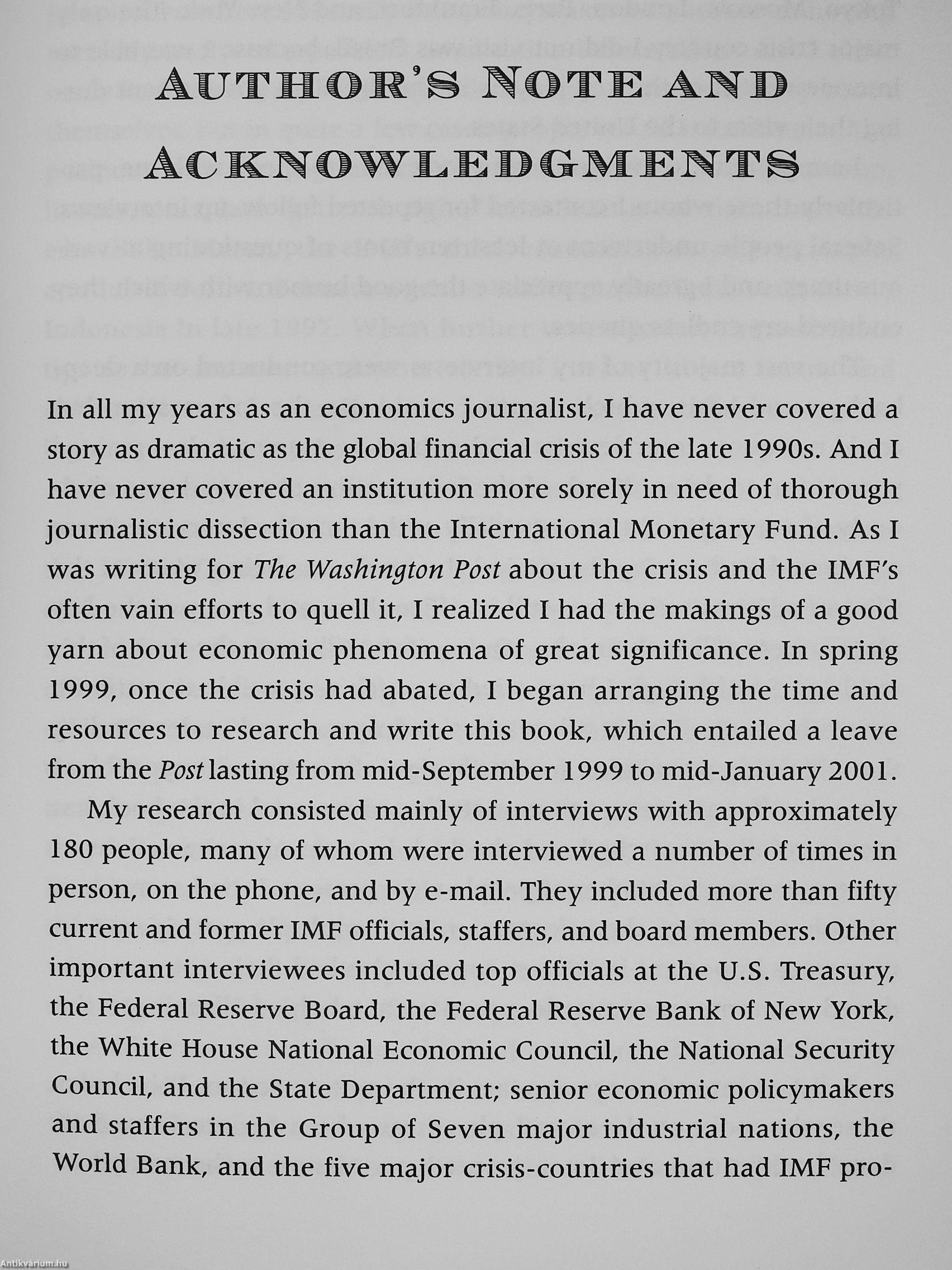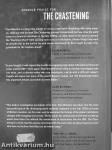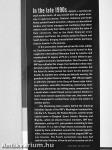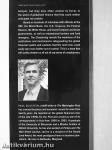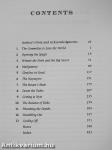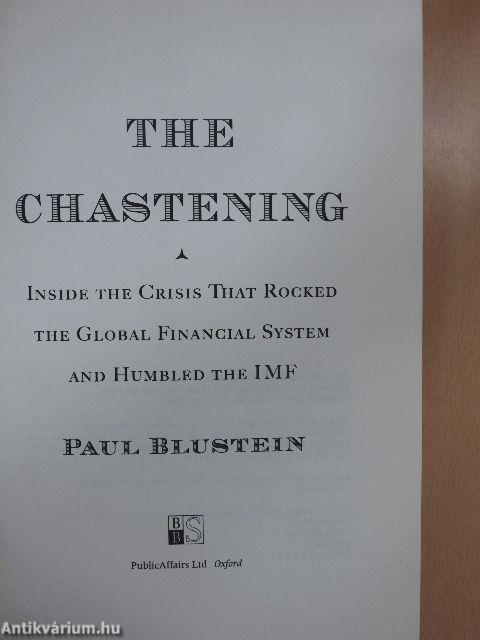1.062.618
kiadvánnyal nyújtjuk Magyarország legnagyobb antikvár könyv-kínálatát

VISSZA
A TETEJÉRE
JAVASLATOKÉszre-
vételek
The Chastening
Inside the Crisis That Rocked the Global Financial System and Humbled the IMF
| Kiadó: | PublicAffairs Ltd |
|---|---|
| Kiadás helye: | Oxford |
| Kiadás éve: | |
| Kötés típusa: | Ragasztott kemény kötés |
| Oldalszám: | 432 oldal |
| Sorozatcím: | |
| Kötetszám: | |
| Nyelv: | Angol |
| Méret: | 24 cm x 16 cm |
| ISBN: | 1-903985-25-0 |
naponta értesítjük a beérkező friss
kiadványokról
naponta értesítjük a beérkező friss
kiadványokról
Előszó
TovábbFülszöveg
ADVANCE PRAISE FOR
THE CHASTENING
"Paul Blustein is a long-time master at mixing suspenseful storytelling with savvy analysis. Until you read his book The Chastening, you won't understand just how close the world came to a financial meltdown in the late 1990s—or what needs to be done to prevent the "Electronic Herd" from causing such a crisis in the future. Steven Seagal may want to consider this as the text for his next movie; and George W. Bush ought to make it his guidebook for the troubles ahead." ^fl^r'lJIHHlP^^^i^i^l
"So you thought it was impossible to write an engaging book about international financial crises and the IMF? Think again. Paul Blustein shows what an intrepid investigator who can write, and a talented writer who can investigate, can do with a difficult subject.^ Experts will argue over many of the points Blustein makes, but The Chastening makes' this important debate accessible as never
"This book is investigative journalism at its best. Paul Blustein... Tovább
Fülszöveg
ADVANCE PRAISE FOR
THE CHASTENING
"Paul Blustein is a long-time master at mixing suspenseful storytelling with savvy analysis. Until you read his book The Chastening, you won't understand just how close the world came to a financial meltdown in the late 1990s—or what needs to be done to prevent the "Electronic Herd" from causing such a crisis in the future. Steven Seagal may want to consider this as the text for his next movie; and George W. Bush ought to make it his guidebook for the troubles ahead." ^fl^r'lJIHHlP^^^i^i^l
"So you thought it was impossible to write an engaging book about international financial crises and the IMF? Think again. Paul Blustein shows what an intrepid investigator who can write, and a talented writer who can investigate, can do with a difficult subject.^ Experts will argue over many of the points Blustein makes, but The Chastening makes' this important debate accessible as never
"This book is investigative journalism at its best. Paul Blustein describes how the most successful part of the developing world suddenly imploded in the late 1990s as herds of Western investors ran for cover, and he examines the failings of the global institutions charged with managing such crises. Yet he avoids the sentimental belief that everything would have been fine without the involvement of institutions like the IMF The Chastening is a must-read for anyone concerned with the harm done by these financial crises who does not believe that they can be wished away."
=M)HN WILLIAMSON,
Senior Fellow, Institute for International \ Economics, and former Chief Economist, i': South Asia Region, the World Bank
In the late 1990s
III lllc Idle I UUUo, despite a spectacular stock market boom, all was not well with the global economy. In rapid succession, Thailand, Indonesia and South Korea spiraled toward economic collapse as international bankers and money managers lost confidence that these nations could repay their debts and maintain the value of their currencies. And as the Asian financial crisis smoldered and flared, the embers spread to Russia and South America, bringing industrialized nations perilously close to disaster in the process.
In this provocative inside look at how the crisis unfolded, Paul Blustein shows how the financial turmoil in Asia caught the International Monetary Fund by surprise and ovenwhelmed its legions of Ph.D.'s in their efforts to protect against economic destabilization. Over the years, the IMF has cultivated the image of an institution whose masterminds coolly dispense effective economic remedies, but the Asian flu nearly proved too much for the doctors to handle. As markets were sinking and defaults looming, the guardians of global financial stability—IMF officials together with their overseers in the Group of Seven major industrial countries—were often floundering, improvising, feuding among themselves and striking messy compromises. In a world where capital flowed across national borders in much more massive quantities than ever, they were woefully ill-equipped to combat these virulent new strains of investor panics.
The Chastening takes readers behind the imposing limestone façade of the IMF's Washington headquarters, into the U.S. Treasury, the Federal Resen/e, and the ornate central banks in Bangkok, Seoul, Jakarta, Moscow, and Brasilia—where we observe finance ministers, IMF trou-bleshooters, and top U.S. policymakers scrambling to stave off disaster. It is a tale of high drama occasionally punctuated by farce as Blustein recounts the missed opportunities, misconceptions, and miscues that plagued IMF rescue missions. The Fund's economists may have had sophisticated theories of how to pull an economy out of a
(CONTINUED ON BACK FLAP)
(CONTINUED FROM FRONT FLAP)
tailspin, but they were often undone by forces in the world of globalized finance that they could neither anticipate nor contain.
Based on hundreds of interviews with officials at the IMF, the World Bank, the U.S. Treasury, the Federal Reserve, the White House, and many European and Asian governments, as well as international bankers and fund managers, The Chastening reveals the weakness of the institutions and mechanisms safeguarding the global financial system and cautions that the next crisis could easily spin even further out of control. This is a book that will surely chasten us all out of any sense of complacency.
PAULBLUSTEIN,a staff writer at The Washington Post, has covered business and economic issues for more than twenty years. He reported on the global financial crisis of the late 1990s for the Posf and served as one of its correspondents in Asia from 1990 to 1995. A graduate of the University of Wisconsin and a Rhodes Scholar at Oxford University, he has also worked at Forbes and The Wall Street Journal, and he is a recipient of the Gerald Loeb Award, the most prestigious honor in business journalism. He lives in Bethesda, Maryland. Vissza



